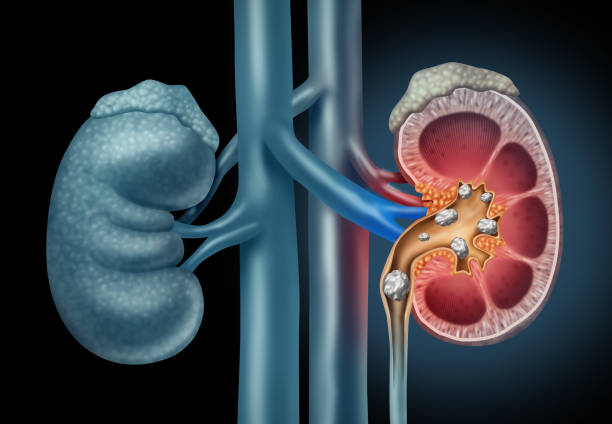
STONE TREATMENT
Stone Treatment & Types
Stone formation in the human bodies, commanly known as calculli or concreations, represents a prevalent medical concern that can affect various organs. On of the most well-known instances is the development of kidney stones, which are solid,which are solid deposits of minerals and salts that form in the kidneys.Additionally, gallstones can form in the gallbladder, composed of cholesterol or bilirubin, potentially leading to complications such as inflammation and obstruction of the bile ducts.
What type of stone dieases we treat?
We are professional in stone treatment with having good experince in medical as well as surgical. There is various tupe of stones form in our body due to seprate reasons, treatment of stone depend upon the size of the stone and place of the stone where it develop. Here are some type of stones dieases we treat very well.
Kidney Stone-These hard nuggets grow when minerals, usually calcium, build up in your urinary tract. They can really hurt, especially in your back near your hips and ribs, if they get big enough to block all or some of your pee. You might see blood or even a piece of a stone in your urine. Smaller ones sometimes exit on their own in your pee. But you might need surgery to get rid of larger ones.
There are four type of kidney stones develop in our body-- Calcium Oxalte
- Uric Acid
- Structive
- Cystir
- Shockwave lithotripsy
- Uteroscopy
- Percutaneous
- Nephrolithomy
- Nephrolithotripsy
Throat Stone-Your tonsils are two lumps of tissue at the back of your throat that help filter out germs. Food, dead skin, or other debris can get caught there and harden into stones, called “tonsilloliths.” You might have a sore throat, stinky breath, and swollen tonsils with white spots. You can usually brush the stones gently away with your toothbrush or a cotton swab, or gargle them away with saltwater.
Treatment-- Good oral hygiene, including gargling with warm salt water, can helpmanage most tonsil stones.
- In rare cases, an ear, nose and throat (ENT) specialist may need to surgically remove your tonsil stones,if they become very large.
Bladder Stone-You might get them because you don’t pee fully. Or because your urine is too high in some minerals and too low in others. These stones form on their own or after a small kidney stone slips down to the bladder and gets bigger. You might have cloudy or bloody urine, or pain in your lower belly when you pee. Your doctor could treat it with surgery or drugs, or break it up with sound waves and lasers.
Treatment-- Transurethral cystolitholapaxy.
- Drugs are rarely used to dissolve the stones.
Gallbladder Stone-This small organ in your upper right belly stores a digestive juice called bile. Cholesterol and a compound called bilirubin in the bile may lead to gallstones. They’re usually too small to cause pain or to need treatment. You might need surgery to take the gallbladder out if the stones are causing pain.
Treatment-- Cholecystectomy Surgery
Prostate Stone-In men, it’s a small gland near your bladder that makes fluid to protect sperm. Stones that form here are about the size of poppy seeds, and they’re more common at middle age and older. Typically you won’t need treatment because they don’t usually cause symptoms. But sometimes they get infected, which can inflame your prostate, and cause urinary tract problems. This may require antibiotics or other treatment.
Treatment-- Transurethral electroresection loop.
- Holmium laser.
Pancreas Stone-This organ in the middle of your belly area makes hormones that help digest food and keep your blood sugar steady. Stones can pass from the gallbladder through bile ducts to the pancreas and inflame it. You could have a fever, fast pulse, nausea, and belly pain that’s worse after meals and radiates to your back. If the stone doesn’t pass on its own, your doctor may take it out. Sometimes they might also remove your gallbladder, the source of the problem.
Treatment-- Dissolution of pancreatic stones using chemic
- Pancreatoscopy
- Intraductal
- Mechanical lithotripsy
Nose Stone-This rare stone starts when a piece of button, eraser, seed, wood, or something similar gets stuck up your nose, often in childhood. Over years, it can attract minerals like calcium, magnesium, and iron and get bigger. Eventually, you may notice pain or smelly mucus that drains from only one nostril. Your doctor finds it by looking up your nose with a special tool, and likely takes out the mass with surgery.
Treatment-- Removed transnasally under local anaesthesia.
FAQs
What kind of disease is stone?
Kidney stone disease, also known as renal calculus disease, nephrolithiasis or urolithiasis, is a crystallopathy where a solid piece of material (renal calculus) develops in the urinary tract.
Is kidney stone a serious problem?
Kidney stones are painful, but most of the time can be removed from the body without causing lasting damage.
What is a urinary stone called?
it may be called a kidney stone, ureteral stone, or bladder stone.
What is uric acid stone?
When you have a high level of uric acid in your blood and urine, small stones can form.

Helping you with-
- Free Consultation
- Satisfactory Treatments
- 24/7 Service

